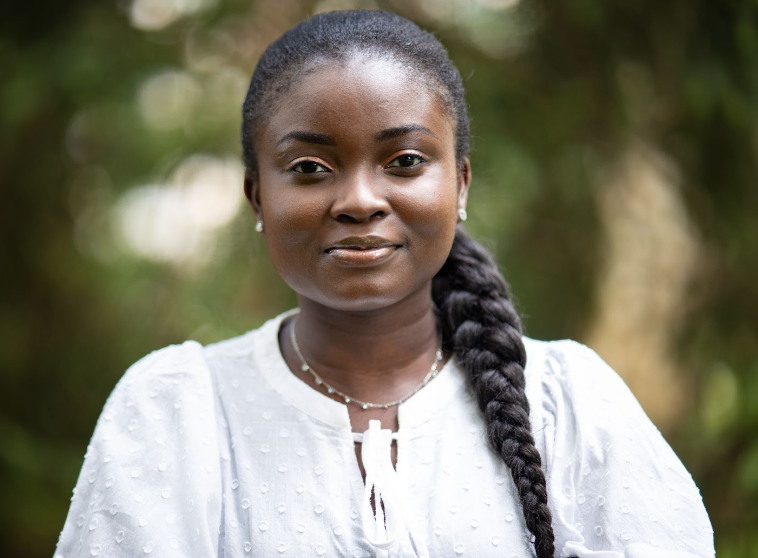Apr 01, 2024
By Fisayo Okare
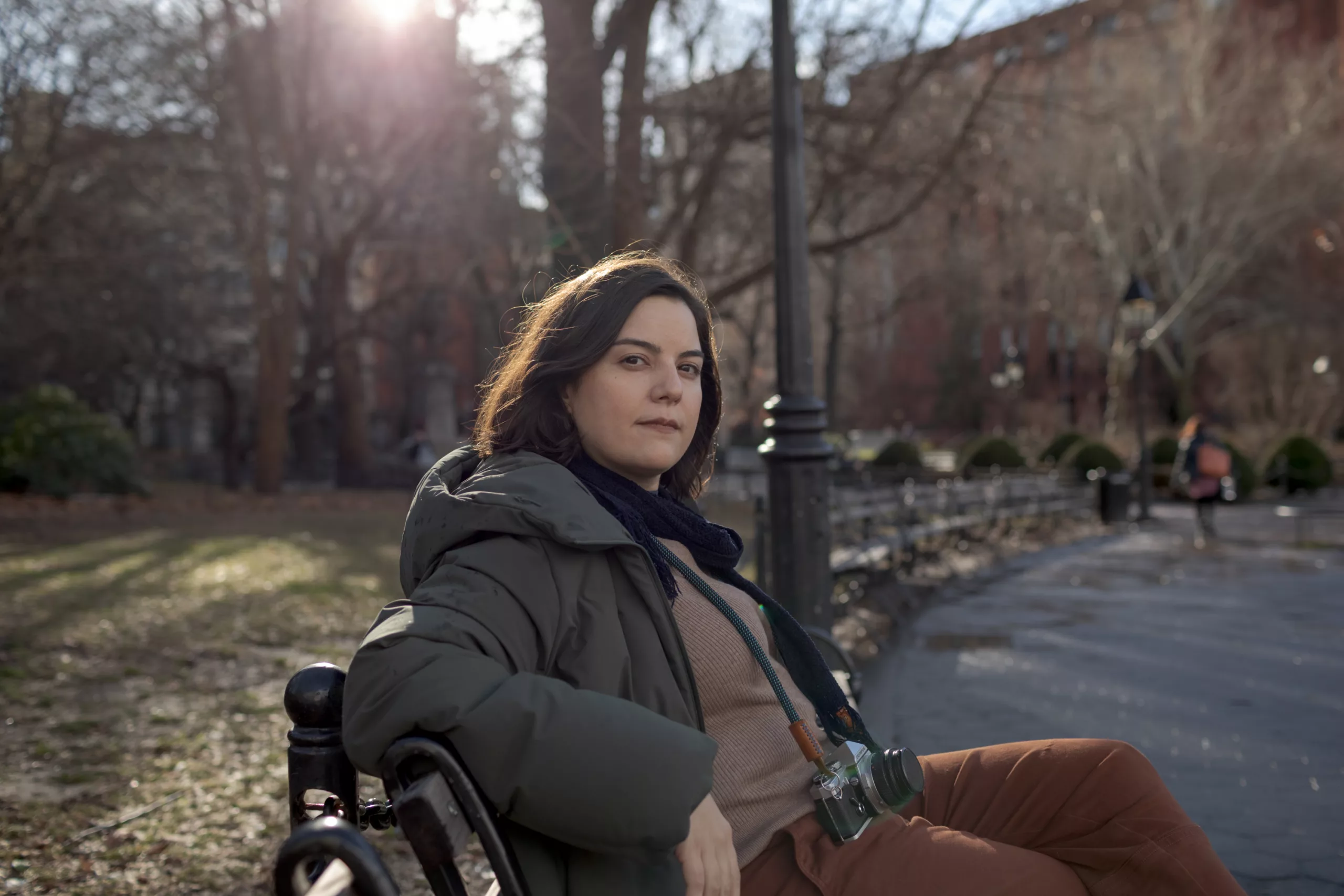
CECILIA DELGADO, an affable 34-year-old, is a storyteller. When we meet at Washington Square Park, she’s holding a vintage Olympus camera, which she often carries around with her in the city. We start talking about her experience living in New York City — including riding the city’s subway system — and she answers by telling me a story complete with dialogue, description and drama.
“Suddenly, the train starts arriving. The rat goes towards the edge and we see the lights of the subway. I’m kind of like, Oh, no, move little rat I don’t want to watch you get decapitated right now,” she says.
It is the most descriptive story of an experience on New York City’s subway that has me hooked from beginning to end.
Delgado was born in Brazil to Venezuelan parents, and grew up in both countries. She took photography classes in highschool and upon graduating, told her mother — a journalist and documentary filmmaker — that she wanted to study film in college. “I grew up watching a lot of movies.” she tells me. “Our weekend activities would be to see two movies back to back. I just couldn’t imagine what else to study; what else to spend four years doing.”
Also Read: Documentary Captures Humanity at Colombian, Venezuelan Border
She chose to study film at NYU and today Delgado has built a remarkable portfolio as a film editor. She’s edited several works, including “The Surrogate” on Apple TV and the film “The Courtroom.” She also has producer and director credits. Her most recent short, “Young Mom,” which she edited, produced, and marked her directorial debut, premiered at the Salerno International Film Festival. Her works have screened at other festivals, and they’ve gone on to be distributed by HBO and Amazon Prime, amongst others.
As she puts it, she’s drawn to projects that “make you think about something and debate it,” which is something I have come to recognize in her work.
The editing and use of sound in “The Courtroom” and “Meats” made me really contemplate the films’ plot and themes. In “The Courtroom,” when Elizabeth, the main character, was lost in thought while waiting for the verdict of her deportation proceedings, the editing, use of sound, and music made me immerse myself in what her thoughts could be.
You know what’s a fun fact? That shot, where she is lost in thought, was intended to come in after the judge is back in the room, sitting down, and Elizabeth is just waiting to hear the verdict. But I was like, no. So much of the film is talking, talking, talking. Finally, about 40 minutes in, there’s silence. We need to just sit with the weight of it and process it.
Bringing that clip before the judge came in was your idea?
Yeah.
That was executed so perfectly.
Yeah, because it made you wanna stick with the viewer’s anxiety and hope. You’re really feeling her feelings.
It felt like I snapped out of my own thoughts as the music stopped when the judge stepped into the room. How do you decide how long such a clip should be before cutting it?
That’s maybe my biggest asset as an editor: having that inner clock, which I think comes from having grown up watching so many movies. You just feel it. It’s based on just the rhythm of the performance. What’s hard as an editor is to watch things with fresh eyes and imagine how someone who hasn’t seen it has felt.
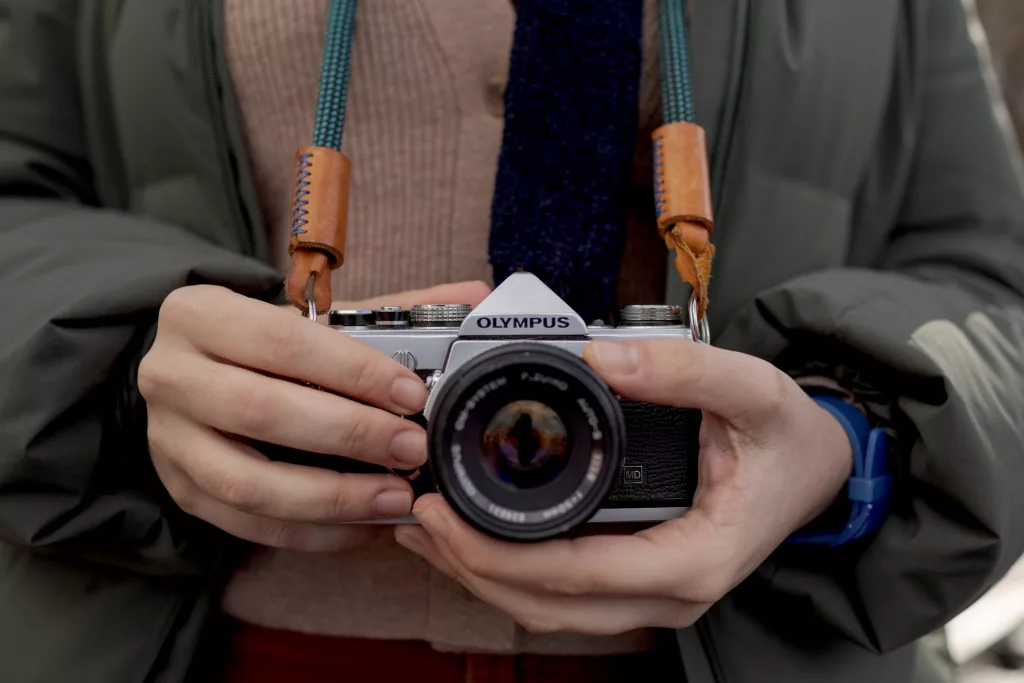
What’s a favorite memory you have of working on “The Courtroom”?
Having lunch with Lee Sunday Evans, the director. We cut the film in my apartment. She would sometimes bring a couple of ingredients, I’d have a couple of ingredients, and we would make a big salad or just make stuff and just chat. Those were really great, nice, special conversations.
Your latest short film and directorial debut, “Young Mom,” is a story about a queer couple navigating the decision about parenthood. What inspired it?
The inspiration came from a relationship I had had. I’ve nannied kids in the city for nine years. The apartment in the film is the parent’s apartment. I was really interested in how we build our own families and communities — also as an immigrant. In lieu of relatives here, I’ve really formed a bond with these parents and other people. I thought that was an interesting context: inserting yourself in someone’s home. I’m a part of the family but also not really a part of the family. What would I have to do to break the illusion of that bond? When does it really become us versus them if I were to transgress some boundary.
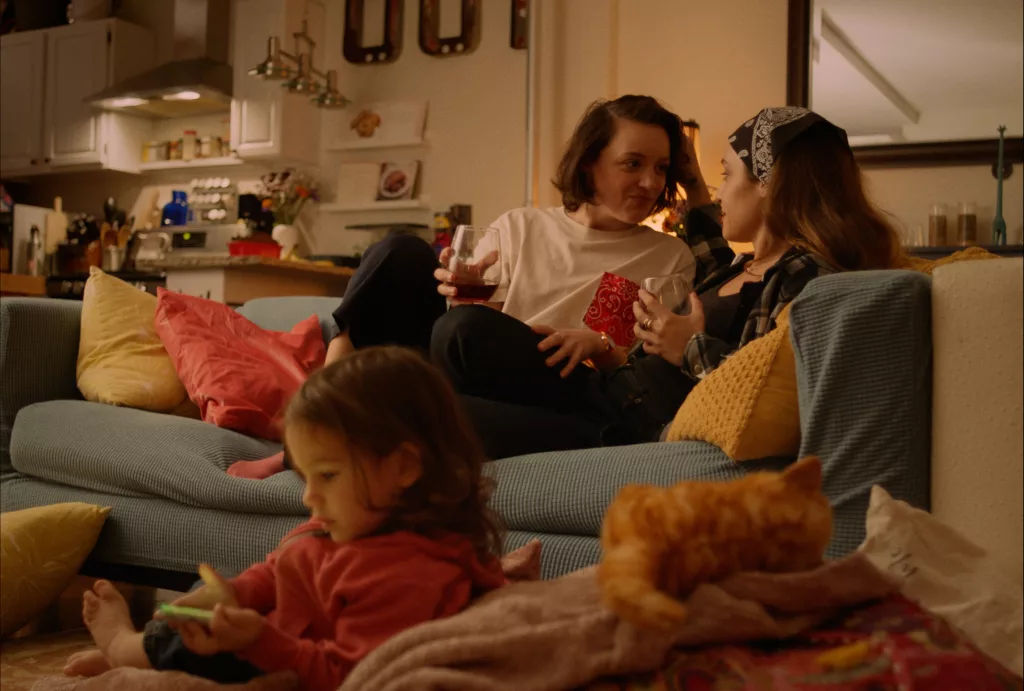
“I was really interested in how we build our own families and communities — also as an immigrant.”
The lead character felt the urge to kidnap a baby she nannied because of her partner. Did that indeed happen to you?
No. The joke happened. The joke of “Should we just kidnap him?” That was actually a conversation that happened. That was someone I dated who I think had her own struggles with her sexuality. She brought up the kid stuff almost as a scapegoat for ultimately not wanting to move forward or keep going.
A lot of your film pivots on characters and themes that are representative of the experiences of the LGBTQ+ community. What insights have you gained from each film’s storytelling that you’d like to further explore in future films?
It still always feels like these stories aren’t being told enough. Depending on what the film is, it might make you think about a different aspect of LGBTQ+ life that you hadn’t considered much. In “The Surrogate,” when the dad is like “Listen, as gay men, we are made to be content with the crumbs that we’re given. Forgive me for wanting to have a proper child. I want what everyone else has. Am I a bad person for wanting that?” It makes you think about different facets, hurdles, or hardships of LGBTQ+ life.
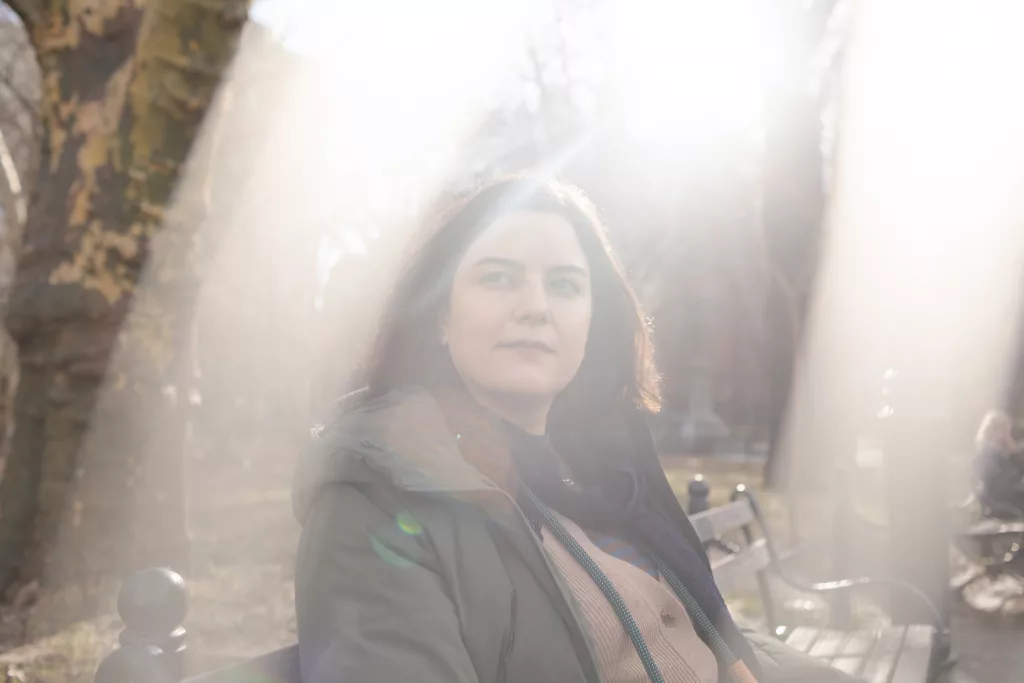
Are there any stories you have always wanted to see that haven’t quite happened yet, but if you had the resources you’d like to tell?
Okay, big question. It would be something to do with immigration. Following a person from country to country. You know, “High Maintenance”? The show? Every episode is almost standalone where it starts with whoever he’s going to deliver weed to that day. Similar to that interconnectivity of it all, I would love a story that is about the Venezuelan diaspora, following how one person moves to a country, they have a cousin that works in UberEATS, that cousin hooks them up, then someone else helps them with their paperwork. A few months later, they’re gonna be the ones helping someone. The errands of the diaspora is an idea that I’ve kept in the back of my mind.
Let me ask you about living in New York City. You’ve lived here since 2008. Do you think of yourself now as a Venezuelan and Brazilian immigrant in the city or as a New Yorker?
I do think of myself as a New Yorker but I think that implies I’m from somewhere else, almost. I think the New Yorker identity also has a mixed background where it might mean where are you really from? My grandmother used to call me a citizen of the world. I really liked that. Kind of like, Hey, I’m just on earth. Venezuela housed me for a decade. Brazil housed me for a decade. Now I’m in the United States.
Since moving here, have you noticed anything interesting to you about the way people interpret you and your work?
There’s something really interesting about figuring out your place in the world or in America as an immigrant, learning the racial hierarchy here. I read “Caste” by Isabel Wilkerson a year ago, and that really made me be like, Whoa, that is exactly it. It’s a caste system.
The book says there are three main instances of caste systems in humanity. The U.S., the Indian caste system and Nazi Germany. It draws parallels between how those three implement things in the exact same way to dehumanize the subcaste. What was true for me was just learning. I never had to check a box about my identity until moving here. I’m Hispanic, but also I’m light skinned and I’ve always thought of myself as white. But I guess I’m not white. And I guess in the U.S., I’d rather reap the benefits of being a minority in terms of, is that why I got into college because I’m Hispanic? I’ve kind of leaned in to just being like, Sure, I’ll call myself whatever you guys want. Give me them benefits.
In the U.S., anyone who’s from anywhere in South America, you’re just Latino, and we’re all the same. And we’re all just lumped under this one term. And we’re here and there’s almost like a sense of brotherhood between us just because of that — despite that experience of being othered here.
“I never had to check a box about my identity until moving here. I’m Hispanic, but also I’m light skinned and I’ve always thought of myself as white. But I guess I’m not white.”
That’s interesting. “Caste” has been on my to-read list for a minute. Have you had a weird or funny New York subway experience, good or bad, you’d like to share?
I was waiting for the G train at Metropolitan. I noticed that people were skirting around a little rat on the platform. It’s a baby rat. Its fur is still really light gray and fluffy. It has really big eyes, translucent pink ears. It’s objectively cute.
In New York, we get used to the rats, they’re gross, we avoid them. But here’s one that’s harmless, and it’s in a bind; it’s lost. It’s not where it should be. It has crossed the line to the human side. Its life is in danger. Everybody’s freaking out.
We’re having that New York moment where it’s okay to talk to a stranger because you’re commenting on something you’re seeing. The baby rat comes up to the edge of the platform; it’s peeking over. It’s almost like it wants to jump down but it’s too far down and it’s too scared. We’re all literally feeling for this poor rat.
Suddenly, the train starts arriving. The rat goes towards the edge and we see the lights of the subway. I’m kind of like, Oh, no, move little rat, I don’t want to watch you get decapitated right now.
It is sniffing out the train and the train is arriving. The train stops. Two doors stop right in front of the rat. The door is open. The little rat’s whiskers twitch, then it takes a step into the subway, and people scream.
This man gets up. He fucking whacks this rat with all his might. The rat flies off the train, hits the wall on the platform, and flops back down onto the platform.
Alive?
Alive, but breathing really heavily. Strained breathing like, Hee Hee. Labored breaths on its little side. Literally, I felt like I got kicked. I stepped onto the subway, I turned to the man, and I was like, “Was that really the best solution?” They’re just like crickets. No one answered.
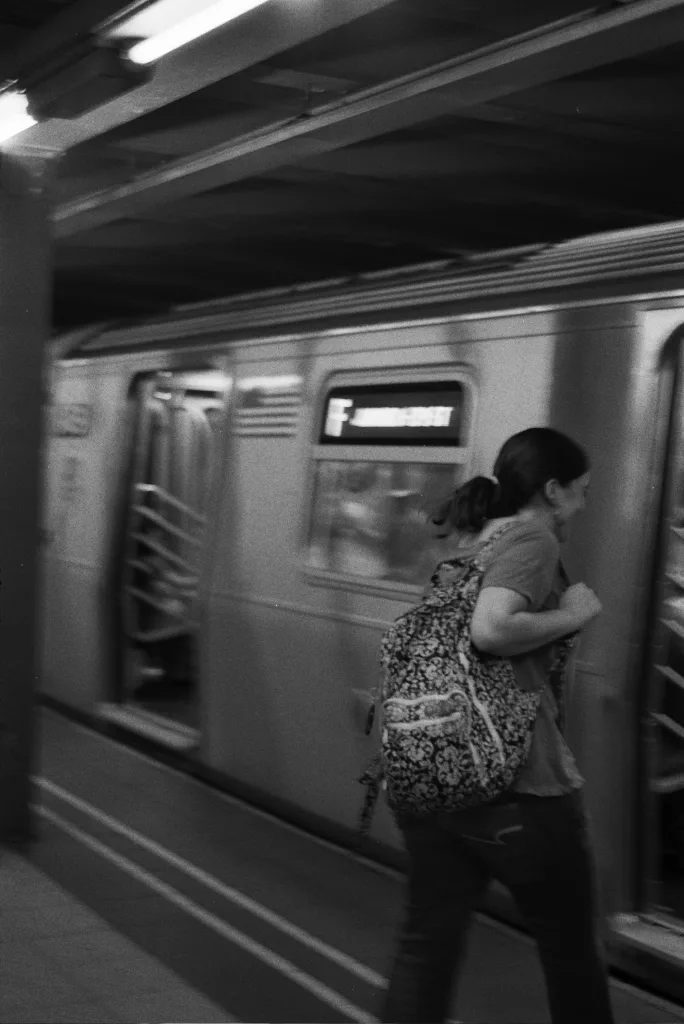
That’s the New Yorker in both of you right there.
That was so excessive. You could have just shoved it off gently. It was a soccer kick, monster kick. That was my train but I got back off. The train leaves. I don’t know what to do with this rat. It’s there dying. So I went back upstairs. I go to the ticket booth, the MTA guy, I’m like “Sir, I need help. There’s a little baby rat. It’s hurt on the platform. Come help.”
The guy is sweeping and he’s just kind of jaded. He’s like, “Alright.” He comes with me to the platform, he scoops it into his pail, goes over to the tracks and dumps it onto the tracks, which is where they live. But like, lower it gently. He just dropped it, which also, what did I think he was gonna do? Bring it out to the grass? So then, we saw adult rats go to it, smell it, leave it, and be like, Whatever this rat, it’s over. I waited for the next train.
My cousin was like “Wow, you really identified with that rat.” And I was like, “That rat is all of us.” You’re just born into this world. It’s not your fault. And then someone’s gonna come whack you for stepping onto a train? I just couldn’t.
That was so descriptive. You are indeed a filmmaker.
That’s why I said New York is a storyteller city because anecdotes are happening every day. You’re talking to interesting people that also have interesting stories and then working in film, which is a storytelling medium. I’m very immersed in stories all the time.
Having been in the U.S. film industry for more than a decade, are there specific things you’d like to see done differently?
I really have a bone to pick with how wasteful the film industry is. How is there not a business that — everyday — takes the food that’s leftover from all the productions around the city and has like a soup kitchen situation with it? In my earlier production days, I would try to call places. But then it’s like, Oh, but this has been open. And there are concerns about perishability. But we got to figure something out.
Then the plastic water bottles usage. I’m so anal on set about having a Sharpie on me at all times and having people label their bottles because you throw out 50 water bottles, Poland Springs, that people took two sips of, put down, and forgot was theirs. Then, it’s fully in the trash. Okay, if we’re throwing these out, let’s go dump the water on a plant and then recycle the bottles.
A more cultural thing or a social thing would be just having more women in film. The crew is all guys. I think that is slowly changing. But it’s rare to have a lady director of photography; it’s also rare to have women in grip and electric. A little more balance will be nice, especially as we tell different stories. We need the crew to contribute to that.
This interview has been edited for concision and clarity.
